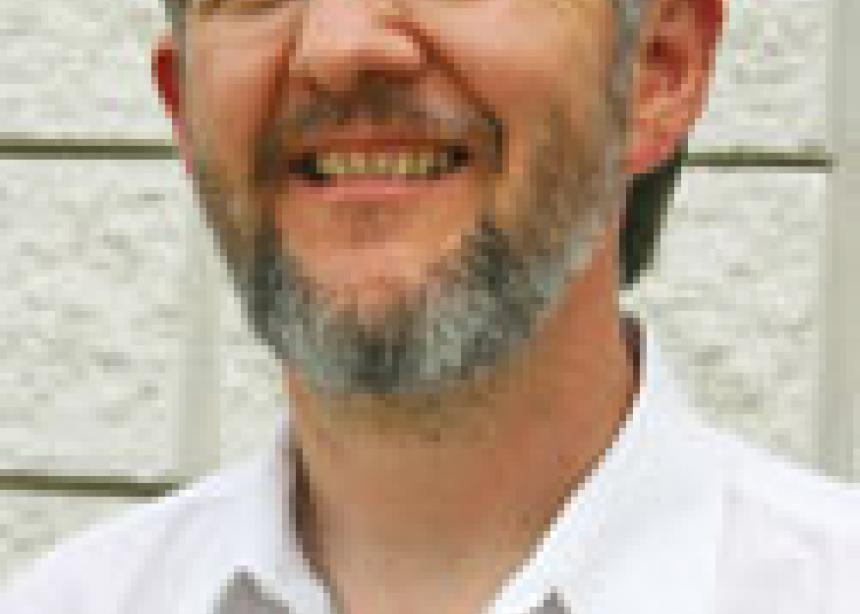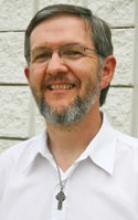Growing up in a family with an Evangelical Mennonite bent meant that I early on learned about going to church. While we had prayers at meals, bedtime and on special occasions—like going on a trip or during sickness—we did not have a regular devotional life at home. In Sunday school, youth group and a charismatic Bible study I joined after being baptized, I learned that regular prayer and Bible reading would be good and practised them sporadically. When I married, we tried to do the same and, again, managed sporadically.
From reading about God’s people in the Bible and in other literature, and speaking to people, I knew that there was more. People spoke of being guided by God, of sensing God’s presence. I wanted more, but didn’t know where to look. Everywhere in the church, prayer seemed to be primarily focussed on intercession, although adoration, confession and thanksgiving were mentioned.
Mennonite Brethren Bible College in Winnipeg, Man., put me in contact with fellow strugglers—both students and faculty—who were trying to grow deeper. The annual January Deeper Life meetings were helpful, but it wasn’t until 1981, my final year, that a path opened up.
Richard Foster had recently written Celebration of Discipline and was working on Freedom of Simplicity. His description of the classic spiritual disciplines caught my wife’s and my imagination. My wife and I bought both books and began to read. We practised fasting, contemplation, study, celebration, journalling and the other disciplines he described, being aware of the knife edge between legalism and indolence. Prayer became more than giving God a list of requests.
Our arrival at Associated Mennonite Biblical Seminary, Elkhart, Ind., in 1988, after five years of pastoral work, found us ready for more. The spiritual life disciplines course, group retreats, spiritual direction and friendships deepened our lives of prayer. I sensed God present, listening to me, wanting me to listen to God, leading, caring, counselling, and correcting more and more.
Years of individual unguided monthly retreats eventually gave over to one-, three- and eight-day directed silent retreats at Loyola House, near Guelph, Ont. Although I didn’t know it, I was being trained in Ignatian spirituality, specifically gospel contemplation.
Other Mennonite leaders were on the same journey, finding the classic disciplines to be growing us deeper in a sense of having God present in our everyday lives. Eventually Loyola House helped me find a spiritual director who guided me towards the Ignatian exercises: nine to 12 months of an hour a day of specific contemplations on the life of Jesus together with an hour a week with a spiritual director.
These were life-changing. Spending an hour a day in imaginatively engaging Scripture stories, asking myself questions, sitting with God, and waiting for answers or peace, continues to be a steady space in the chaotic world. I have continued the prayer life for the last seven years, guided by a monthly visit with my director. I also partake in the retreats offered by Mennonite Spiritual Directors of Eastern Canada and spiritual friendships.
Although I have not taken extended training as a director, pastoring is a task of guiding individuals, groups within the congregation, and everyone as a whole to experience God in day-to-day living and in the life of the congregation. Using guided prayer or contemplative reading in worship or formation hour, or in visioning and transformational work, has helped us to stay grounded in our identity as God’s people.
It is my hope that I and my fellow believers can move to the place where life is a prayer, an ongoing, growing relationship with the One who loves us more than we love ourselves. Hearing that Pope John-Paul II was praying as he died in April 2005 gave me great hope for my life.
I am excited by the spiritual awakening I see happening in the church.



Add new comment
Canadian Mennonite invites comments and encourages constructive discussion about our content. Actual full names (first and last) are required. Comments are moderated and may be edited. They will not appear online until approved and will be posted during business hours. Some comments may be reproduced in print.